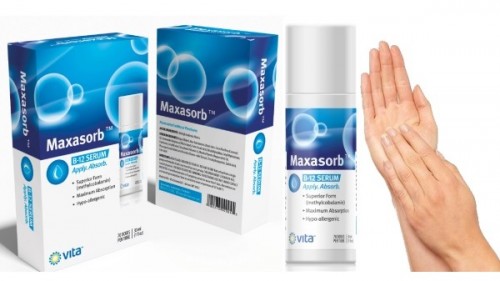Vitamin B12 deficiency and menopause: Signs and symptoms of menopause are sometimes associated with vitamin B12 deficiency, or malabsorption of vitamin B12 from the foods you eat. To boost energy, sleep better, and balance your mood, it’s important to take extra doses of vitamin B12 during the menopause years.
Vitamin B12 deficiency and Menopause: symptoms, treatment
Menopause is a phase that may stretch for several years; many women experience their first signs of peri-menopause (early menopause) in their 40’s, while still menstruating.
During the early stages, you experience fluctuation hormone levels that cause mood swings, headaches, hot flashes, memory loss, and brain fog.
All of these are symptoms that may also indicate depleted levels of vitamin B12!
Hidden vitamin B12 deficiency
Vitamin B12 deficiency is difficult to catch and treat, as the symptoms are masked by conditions such as menopause, clinical depression, hypothyroidism, or hypoglycemia- all of which cause ailments that are strikingly similar to the ones you experience when your vitamin B12 levels drop to a dangerous low, either from malabsorption issues or change in diet.
Too often, severe vitamin B12 deficiency, a.k.a., pernicious anemia, slips right off your doctor’s radar, especially during the menopause years. And it’s easy to understand why, especially when you consider that the most common symptoms- fatigue, achiness, poor memory, dizziness, and depression- are present in both vitamin B12 deficiency anemia and the many stages of menopause.
For that reason, premenopausal women and females already experiencing menopause are advised to test often for vitamin B12 deficiency, and recognize the symptoms, before their B12 levels drop to a dangerous low.
Symptoms of vitamin B12 deficiency
Untreated, vitamin B12 deficiency from pernicious anemia can lead to neurological disorders, chronic fatigue, mood problems, and increased risk for heart attack and stroke.
That’s because vitamin B12 is essential for so many biological functions necessary for good health- reproduction, nervous system functioning, cognitive integrity, and metabolic energy.
So, when vitamin B12 levels plummet, you begin to experience a variety of health problems that affect all parts of your body, including those already ailing from symptoms of menopause.
Vitamin B12 Deficiency Symptoms that Mimic Aging
Symptoms of vitamin B12 deficiency that mimic menopause include:
- Depression
- Anxiety
- Chronic fatigue
- Short-term memory loss
- Disorientation
- Brain fog
- Hot and cold flashes
- Headache
- Irritability
- Heart palpitations
- Frequent breathlessness
- Diarrhea
- Stomach cramps
- Difficulty sleeping
- Muscle weakness and pain
Treatment
The B12, B6 and folic acid help with mood and to ease you through the transition.
The Linus Pauling Institute recommends 100 to 400 mcg per day of supplemental vitamin B-12 orally if you’re older than 50, an age that includes many menopausal women.

Boost energy with the B12 Patch! Buy Now.

Get more vitamin B12 in a gentle cream. Buy Now.
Your turn!
Do you have any questions or suggestions? Please leave your comments below.
Share with your friends!
If you found this article helpful, then please share with your friends, family, and coworkers by email, twitter, or Facebook.
